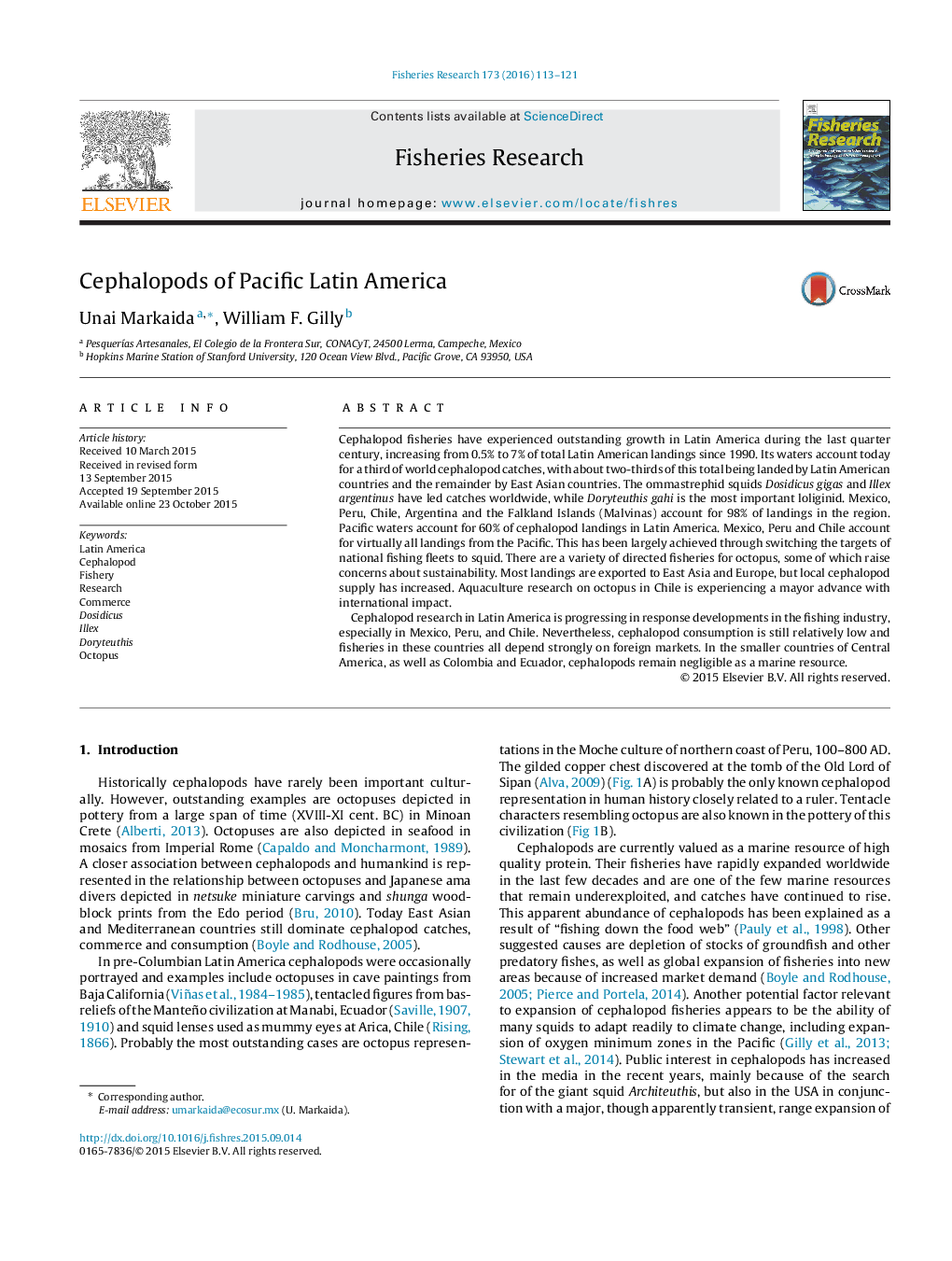| کد مقاله | کد نشریه | سال انتشار | مقاله انگلیسی | نسخه تمام متن |
|---|---|---|---|---|
| 4542735 | 1327096 | 2016 | 9 صفحه PDF | دانلود رایگان |
Cephalopod fisheries have experienced outstanding growth in Latin America during the last quarter century, increasing from 0.5% to 7% of total Latin American landings since 1990. Its waters account today for a third of world cephalopod catches, with about two-thirds of this total being landed by Latin American countries and the remainder by East Asian countries. The ommastrephid squids Dosidicus gigas and Illex argentinus have led catches worldwide, while Doryteuthis gahi is the most important loliginid. Mexico, Peru, Chile, Argentina and the Falkland Islands (Malvinas) account for 98% of landings in the region. Pacific waters account for 60% of cephalopod landings in Latin America. Mexico, Peru and Chile account for virtually all landings from the Pacific. This has been largely achieved through switching the targets of national fishing fleets to squid. There are a variety of directed fisheries for octopus, some of which raise concerns about sustainability. Most landings are exported to East Asia and Europe, but local cephalopod supply has increased. Aquaculture research on octopus in Chile is experiencing a mayor advance with international impact.Cephalopod research in Latin America is progressing in response developments in the fishing industry, especially in Mexico, Peru, and Chile. Nevertheless, cephalopod consumption is still relatively low and fisheries in these countries all depend strongly on foreign markets. In the smaller countries of Central America, as well as Colombia and Ecuador, cephalopods remain negligible as a marine resource.
Journal: Fisheries Research - Volume 173, Part 2, January 2016, Pages 113–121
